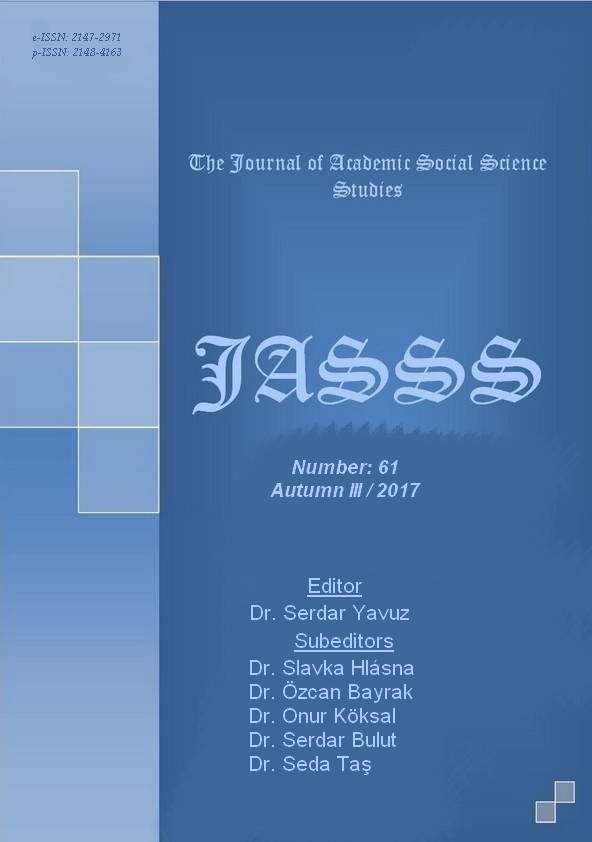RAZİ’NİN HİDAYET VE DALALETLE İLGİLİ AYETLERİ YORUMLAMASI VE BU HUSUSTA MUTEZİLEYLE GİRİŞTİĞİ TARTIŞMA (TEFSİR-İ KEBİR BAĞLAMINDA)
Author :
Abstract
Allah ile insan münasebetinin bir boyutunu da hidayet ve dalaletle ilgili mesele oluşturur. Kur’an, “Şüphesiz biz ona (doğru) yolu gösterdik. İster şükredici olsun ister nankör” (İnsan: 76/3) ayetinde de ifade ettiği gibi doğru yolu insana göstermiştir. Kur’an’ın insandan istediği şey, cüz’i iradesini kullanarak dalaletten sıyrılıp hidayete ermesidir. Böylece hidayete eren insan hem dalaletten kendini kurtaracak hem de Allah ile münasebetini sağlam bir temele oturtacaktır. Hidayet ve dalaletle ilgili mesele itikadî bir konudur. Bu hususta geçmişten günümüze kadar itikadî mezhepler arasında büyük tartışmalar süregelmiştir. Müfessir Razi’nin de dahil olduğu Ehl-i Sünnet, Mutezile ve Cebriye insan iradesini farklı noktalarda konumlandırmalarından dolayı bu hususta değişik yorumlar ortaya çıkmıştır. Bu durum kendini söz konusu ayetlerin tefsirinde de kendini göstermiştir. Razi, kendi düşüncesi çerçevesinde söz konusu ayetleri tefsir etmiş ve aynı zamanda Cebriye ve Mu’tezile’ye eleştiriler yöneltmiştir. Bunun yanında görüşlerini doğrulamak için Ehl-i Sünnet alimlerinden nakillerde bulunmuş, aklî olarak onların düşüncelerini çürütmeye çalışmıştır. Bu makalede Razi’nin kaleme aldığı Tefsir-i Kebir adlı tefsiri bağlamında hidayet ve dalaletle alakalı ayetleri Razi’nin nasıl değerlendirdiği ele alınacaktır. Bu bağlamda hidayet ve dalaletle ilgili ayetlerin Allah’a nispet edilip edilemeyeceği araştırılacaktır. Yine irade meselesi ve kulun fiilinin yaratıcısının kim olduğu Tefsir-i Kebir bağlamında ele alınıp incelenecektir. Razi’nin bu hususta Mu’tezile’ye yapmış olduğu itiraz da delilleriyle ortaya konulacaktır.
Keywords
Abstract
One of the dimensions of the relationship between Allah and human beings is comprised of the issue about the true path and aberration. As is expressed in the verse “We have undoubtedly led him to the (right) path. Let him be either a praiser or an ungrateful” (Human: 76/3); the Koran shows the true path to human beings. The Koran demands human beings to use their free will, get through aberration and reach the true path. Thus, a person who reaches the true path will be able to not only get through aberration, but also have a strong relationship with Allah. The issue about the true path and aberration concerns faith. In this respect, there have been great discussions between faithful sects from past to present. Followers of Sunnah including Razi the Interpreter, Dissenters and Cebriye interpret the human will from different perspectives as they position it at different points. This condition could also be observed in the interpretation of the aforementioned verses. Razi interpreted these verses within the scope of his own thoughts and also made criticisms about Cebriye and Dissenters. In addition to this, he used the narrations of scholars who were Followers of Sunnah and tried to intellectually confute their thoughts in order to confirm his own thoughts. This article will embrace how Razi evaluated verses about the true path and aberration within the context of his interpretation titled Interpretation of Ledger. In this context, the article will investigate whether verses about the true path and aberration could be correlated with Allah or not. Similarly, the issue of will and the creator of human beings will be embraced and examined within the context of Interpretation of Ledger. Razi’s objection to Dissenters on this issue will also be revealed with documents.
